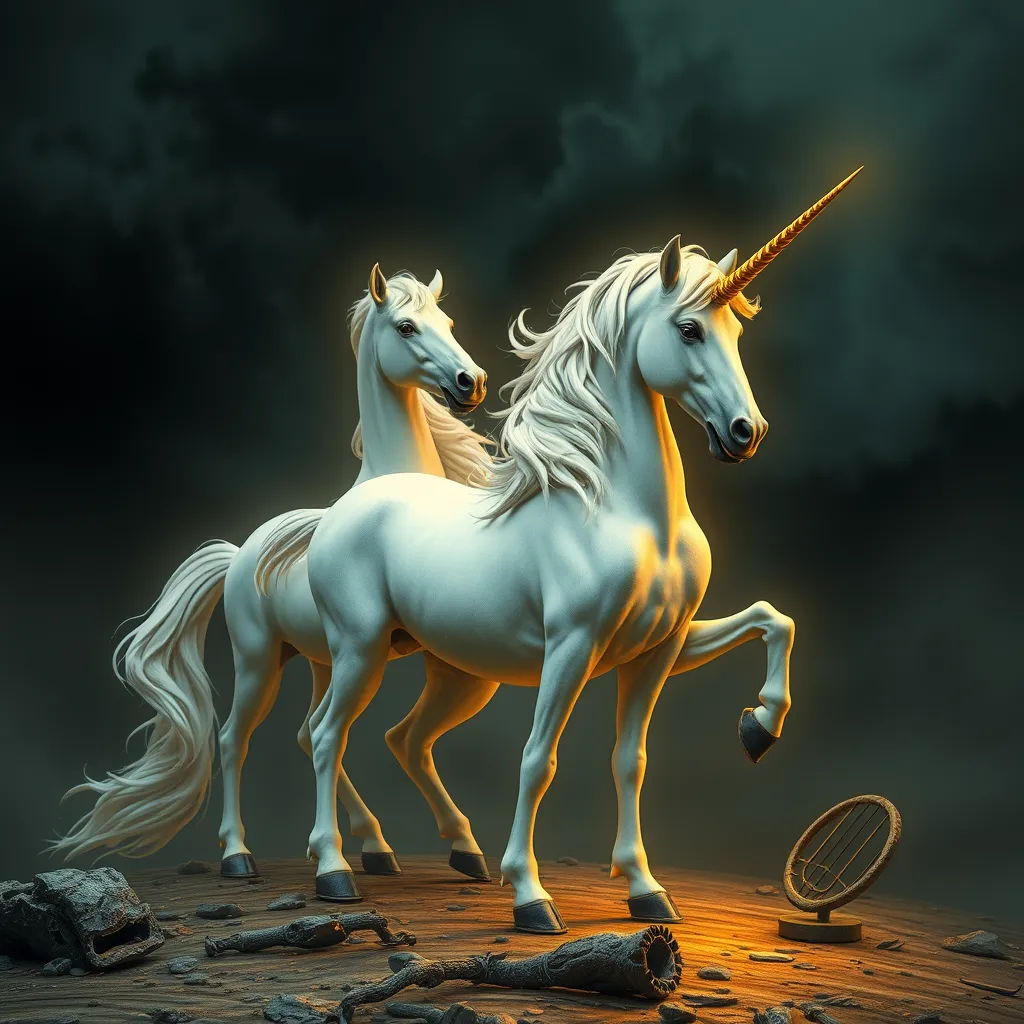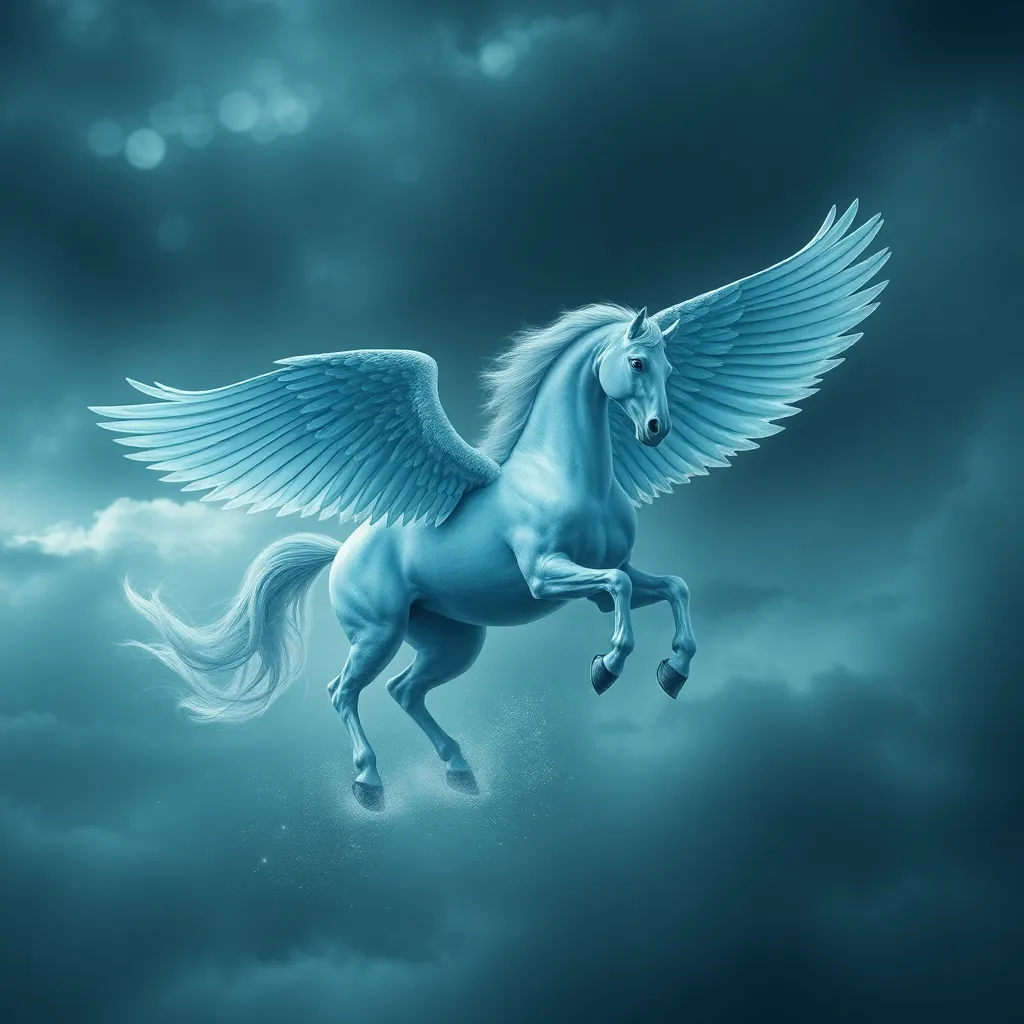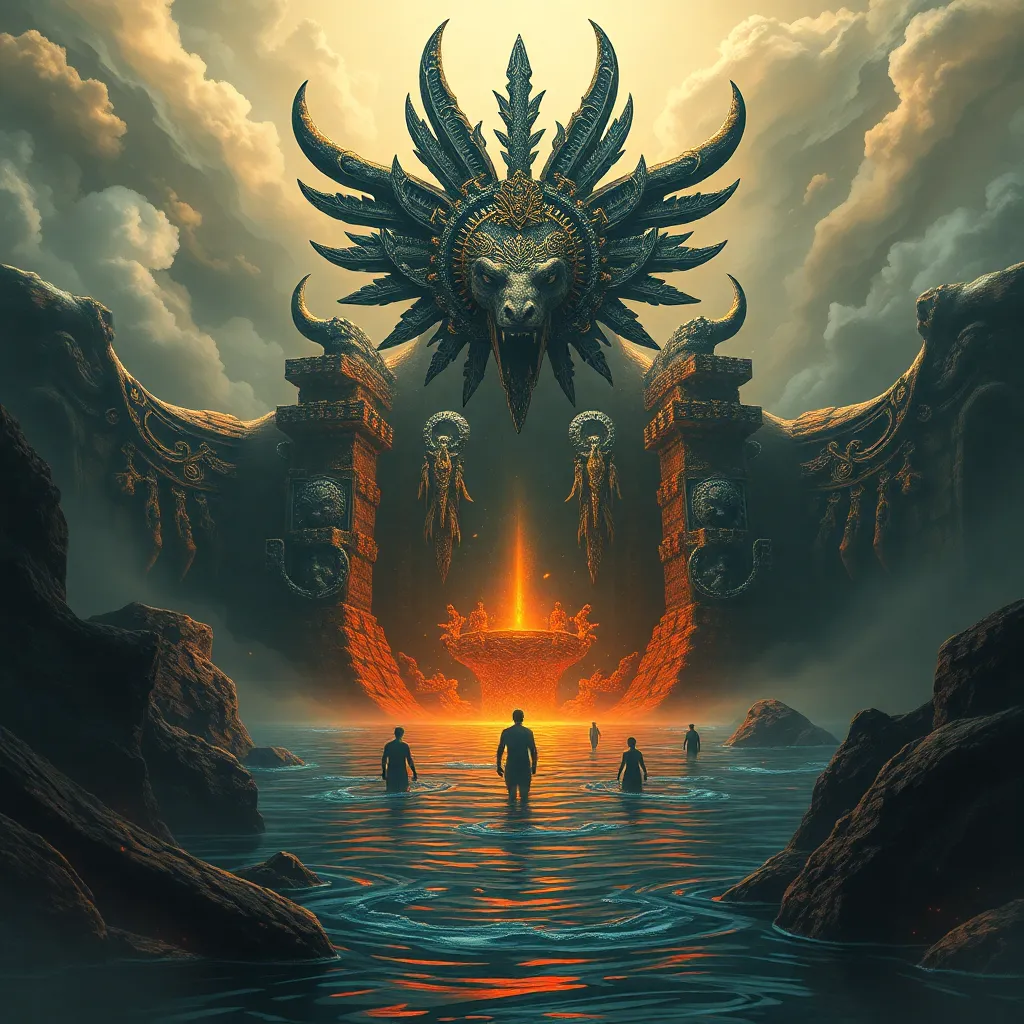Guardians of Purity: Unicorns in Ancient Greek Mythology
I. Introduction to Unicorns in Mythology
Unicorns are one of the most enchanting mythical creatures that have captured the human imagination across various cultures. Typically depicted as horse-like beings with a single spiraled horn protruding from their foreheads, unicorns symbolize purity, innocence, and grace. Their ethereal beauty and elusive nature have made them subjects of fascination in both folklore and art.
The symbolism and significance of unicorns extend beyond mere fantasy; they represent ideals that resonate with human values such as virtue, chastity, and the sacred. In many cultures, unicorns are seen as guardians of purity, embodying the qualities of light and goodness. This article focuses specifically on the portrayal and significance of unicorns within ancient Greek mythology, a civilization rich in stories and symbolism.
II. Historical Context of Unicorns in Ancient Greece
The socio-political landscape of ancient Greece was marked by city-states, each with its unique culture, beliefs, and governance. This environment fostered a rich tapestry of mythology that included numerous mythical creatures, including the unicorn. The Greeks integrated these beings into their cultural narrative as both symbols and metaphors, often reflecting the values and ideals of their society.
Furthermore, the Greeks were influenced by neighboring civilizations, such as the Near Eastern cultures, which also featured similar mythical creatures. The exchange of ideas and stories across borders helped to shape the Greek understanding of unicorns and their roles in mythology.
III. Unicorns in Ancient Greek Literature
Unicorns find their way into ancient Greek literature, though they are not as commonly mentioned as other mythical creatures. Notable references can be traced back to classical texts:
- Ctesias: An ancient Greek physician and historian who wrote about unicorns in his works. He described them as wild horses from India, emphasizing their single horn and unique attributes.
- Poetry and Plays: Although unicorns are not frequently central characters, they appear in various poetic references where their symbolism is invoked to illustrate themes of purity and virtue.
These literary references contribute to the broader interpretations of unicorn symbolism within Greek culture, often associating them with the divine and the unattainable.
IV. The Symbolism of Purity and Virtue
In ancient Greek mythology, unicorns are closely associated with purity and innocence. Their horn is often seen as a symbol of divine power, capable of purifying water and healing ailments. This association highlights the unicorn’s role as a protector of the sacred and the divine.
Moreover, unicorns serve as powerful symbols of virtue, often contrasted with other mythological creatures that represent chaos and corruption. For example, unlike the more malevolent figures in Greek mythology, unicorns embody the ideals of strength combined with grace:
- Guardians of the Sacred: Unicorns are depicted as protectors of sacred spaces, often appearing in legends where they defend purity against dark forces.
- Comparisons with Other Creatures: Similar to the phoenix and the peacock, which also symbolize purity and rebirth, unicorns hold a unique place in the pantheon of purity-themed mythological beings.
V. Artistic Representations of Unicorns
Unicorns have been depicted in various forms of ancient Greek art, including pottery and sculpture. These artistic representations provide insight into how the Greeks viewed these mythical creatures:
- Pottery: Many ancient Greek vases feature intricate designs that include unicorns, often depicted alongside other mythical beings or within scenes that highlight their purity.
- Sculpture: While less common, there are sculptures that illustrate the grace and beauty of unicorns, reflecting their esteemed status in Greek culture.
The evolution of unicorn imagery can also be observed, as it transitioned from a more abstract representation in earlier periods to more defined forms in later artwork. These depictions influenced subsequent artistic movements, reinforcing the unicorn’s legacy as a symbol of purity.
VI. The Unicorn in Greek Folklore and Regional Variations
In addition to their presence in classical literature and art, unicorn-like creatures appear in various local legends and folklore across Greece. These stories often exhibit regional variations that reflect local beliefs and values:
- Local Legends: Some regions have tales of unicorns that interact with mortals, often providing assistance or revealing hidden truths.
- Regional Variations: The portrayal of unicorns can differ significantly from one area to another, with some regions emphasizing their fierce protectiveness while others focus on their gentle nature.
This blend of myth and reality contributed to a rich tapestry of beliefs surrounding unicorns, often blurring the lines between the mythical and the real.
VII. The Legacy of Unicorns in Greek Mythology
The impact of Greek unicorn myths has extended far beyond their origins, influencing later cultures and mythologies. As stories of unicorns spread through the ages, they maintained their symbolic significance:
- Continuity of Symbolism: The ideals represented by unicorns—purity, virtue, and protection—have persisted through various interpretations in different cultures.
- Modern Interpretations: In contemporary literature and art, unicorns continue to be celebrated as symbols of innocence and beauty, drawing on their rich mythological heritage.
VIII. Conclusion
In summary, unicorns hold a significant place in ancient Greek mythology, embodying ideals of purity and virtue that resonate with human values. Their symbolic legacy has endured through the ages, offering insights into the cultural beliefs of ancient Greece and continuing to inspire modern interpretations. As we explore the connections between mythology and contemporary beliefs, the unicorn remains a powerful reminder of the ideals we strive to uphold in our own lives.




